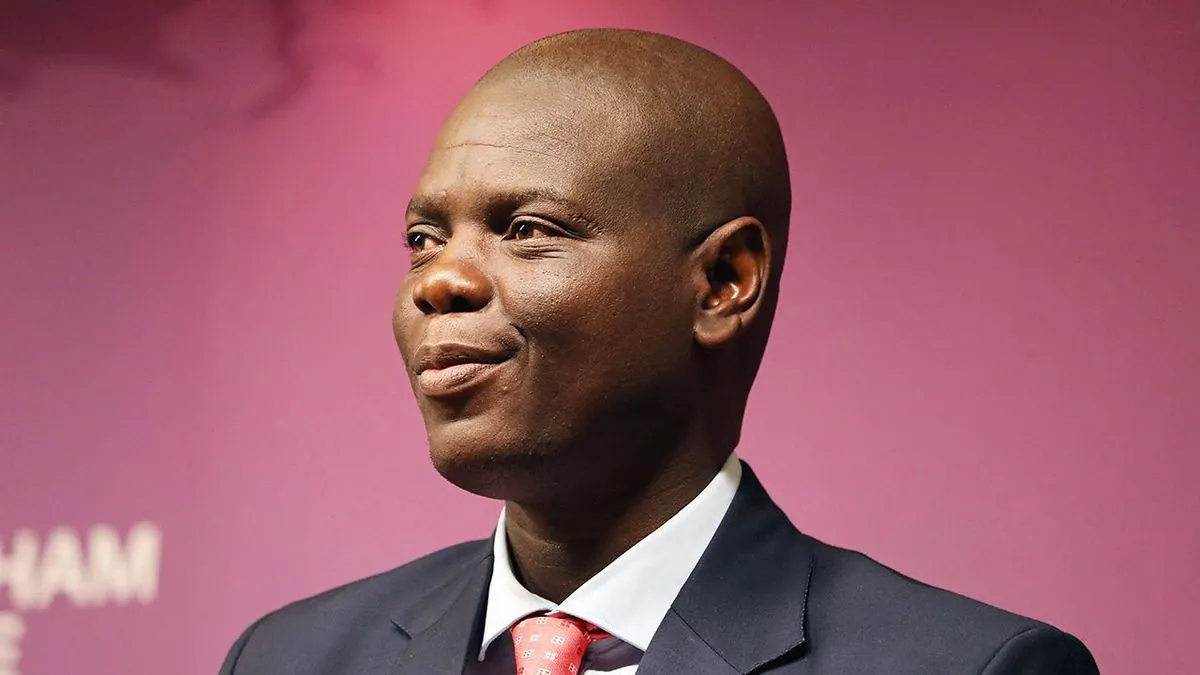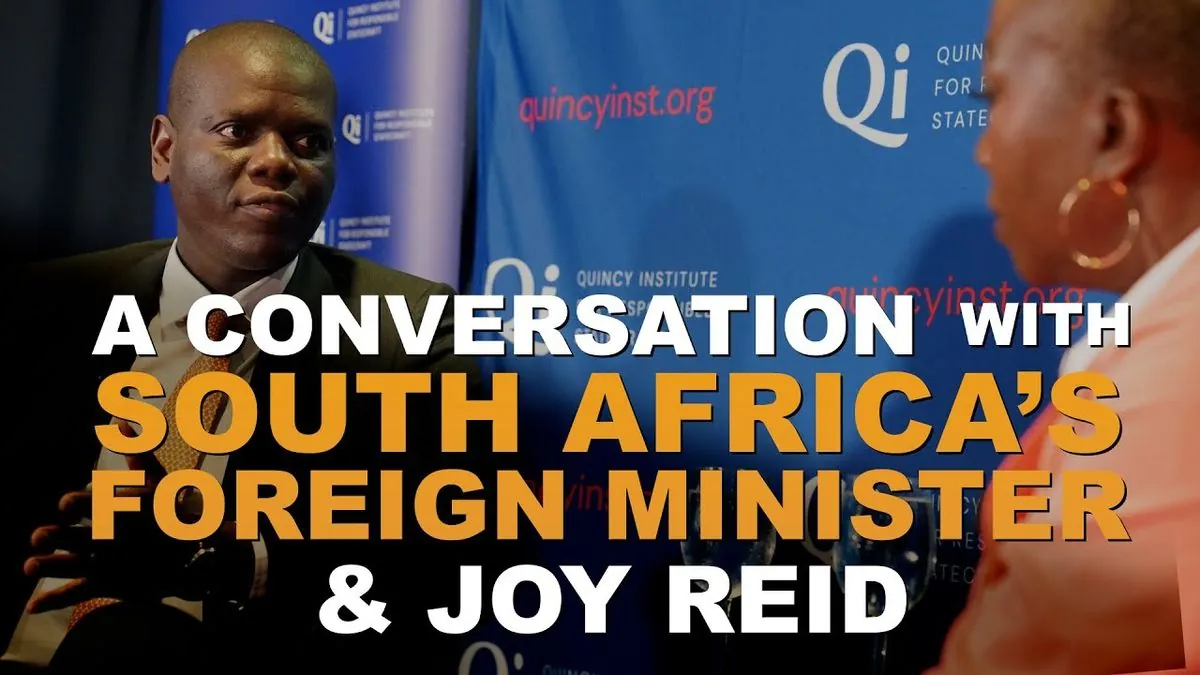South Africa's Foreign Policy Shift: Balancing Morality and Pragmatism
South Africa's new foreign minister discusses the country's stance on global issues, from the ICJ case against Israel to BRICS expansion. The interview reveals a complex balancing act between moral principles and pragmatic diplomacy.

In a recent interview, Ronald Lamola, South Africa's newly appointed foreign minister, shed light on the country's evolving foreign policy. At 40 years old, Lamola is the youngest cabinet member in the new government formed after the African National Congress (ANC) lost its parliamentary majority for the first time in 29 years.
South Africa's decision to bring a genocide case against Israel at the International Court of Justice (ICJ) has drawn significant attention. Lamola explained the rationale behind this move, citing South Africa's historical experience with apartheid and its moral obligation as a signatory to the Genocide Convention. He emphasized the need for Israel to comply with international law, while also condemning Hamas's actions and calling for the release of hostages.
The minister faced questions about South Africa's stance on the Russia-Ukraine conflict. While Lamola condemned specific actions such as the destruction of hospitals and infrastructure, he stopped short of explicitly condemning Russia's invasion. He argued for a nuanced approach, citing concerns about NATO's role in the region and calling for engagement to address security issues.

South Africa's participation in BRICS (Brazil, Russia, India, China, South Africa) was another topic of discussion. Lamola described BRICS as a developmental platform that aligns with South Africa's nonaligned foreign policy. He defended the inclusion of Iran in the bloc, citing potential economic opportunities despite international sanctions against some BRICS members.
The interview also touched on South Africa's role in mediating African conflicts, particularly in Sudan. Lamola highlighted President Cyril Ramaphosa's engagement with warring parties and expressed support for international initiatives to resolve the conflict.
Regarding United Nations reform, Lamola reiterated South Africa's push for permanent African representation on the Security Council. He welcomed recent U.S. support for two African seats but maintained that these should come with veto power.
"Indeed, we have declined, and there've been challenges, which were identified. For that reason, the ANC has adopted a program of renewal to modernize itself. But we think that the most crucial part was in us being magnanimous in defeat and accepting the outcome."
Lamola addressed the ANC's recent loss of its parliamentary majority, acknowledging the party's decline but expressing optimism about its renewal efforts. This marks a significant shift in South African politics, as the ANC has dominated since the end of apartheid in 1994.
South Africa's foreign policy, as articulated by Lamola, reflects a complex balancing act between moral principles and pragmatic diplomacy. The country's unique history and position as a leading African nation continue to shape its approach to global issues, from the Middle East to UN reform.
As South Africa navigates this new era of coalition politics and global challenges, its foreign policy will likely remain a subject of international scrutiny and debate. The country's efforts to maintain its nonaligned status while engaging with diverse global partners underscore the complexities of modern diplomacy in an increasingly multipolar world.


































